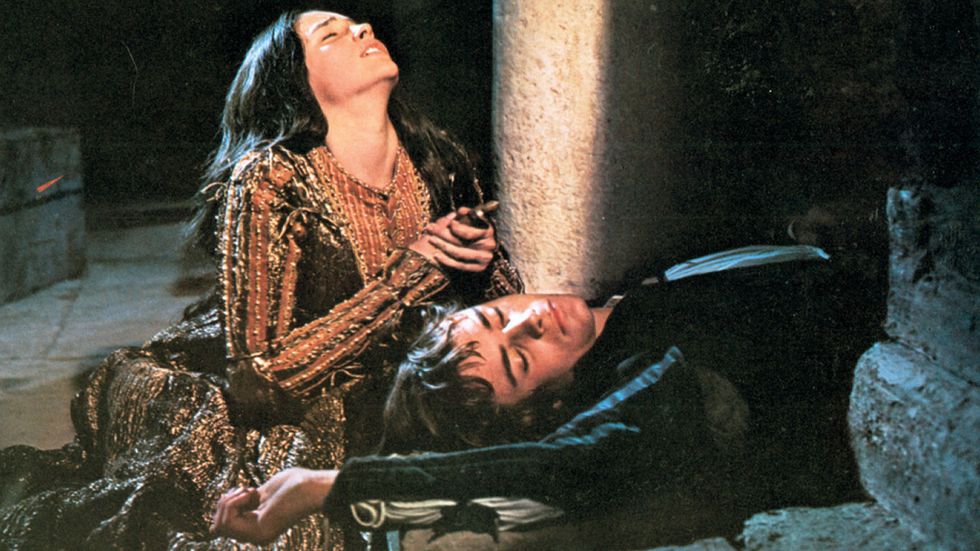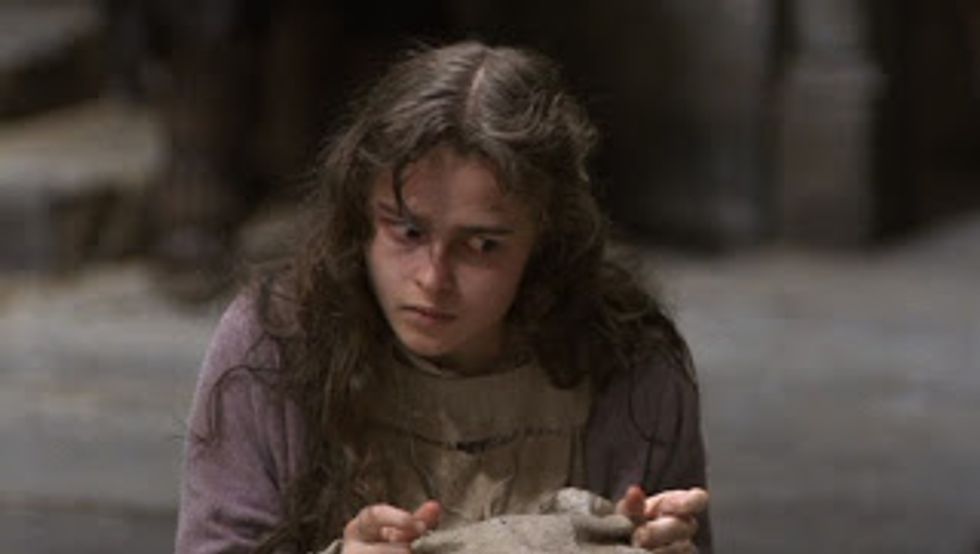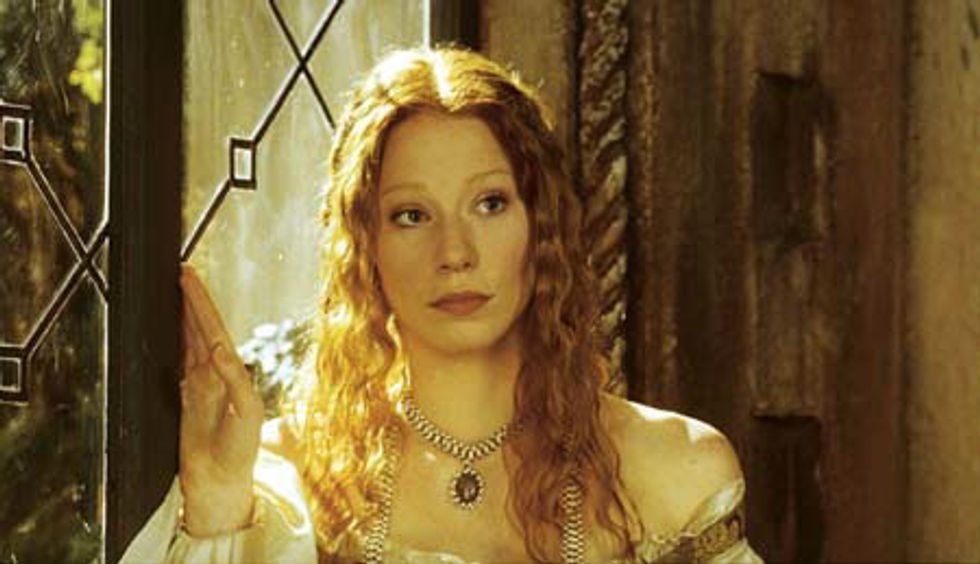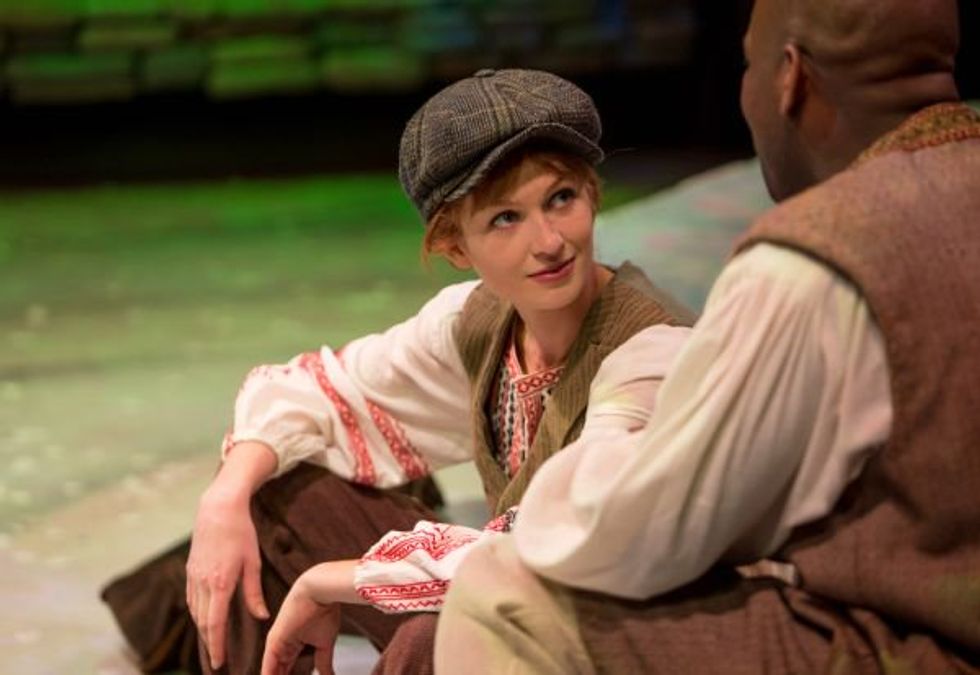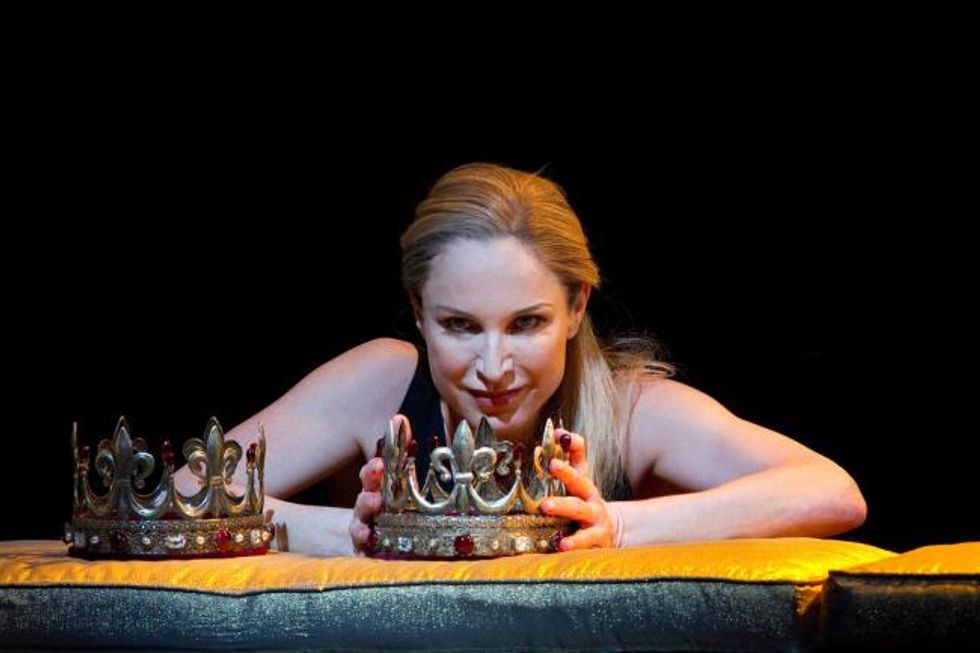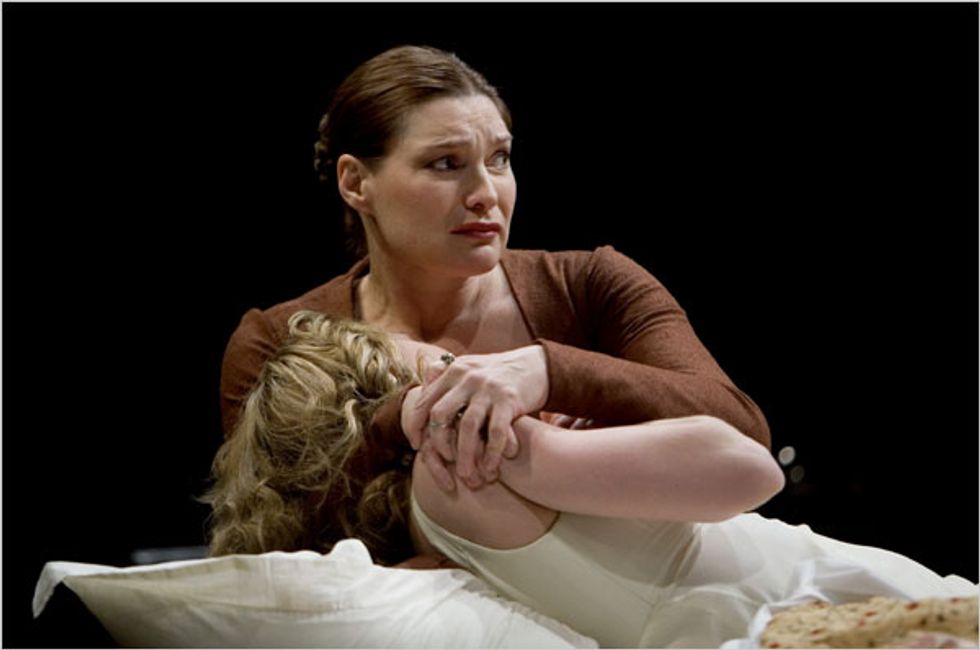Even though most women in the 1400s barely held any economic or political power, the ladies in Shakespeare's plays are portrayed as intelligent, strong-willed, and equally as important to the action as the dudes. Despite coining the often cited phrase "frailty thy name is woman," (and the fact that all female roles were originally played by men) many of the playwright's most complex and interesting roles are those of his female characters. While feminism in its current form may not have existed in the Elizabethan era, Shakespeare certainly deserves credit for writing emotionally complex and diverse heroines and female villains each with their own distinct goals and personalties.
Here's a countdown of just a few of the most memorable women from some of Shakespeare's works.
6. Ophelia ("Hamlet")
While popular culture often uses the term Ophelia to mean a beautiful, disturbed, "mad girl," the actual Ophelia was a passionate, strong-willed young woman who sadly was incapable of coping with her intense grief and heartbreak after the loss of a parent. Throughout the play, Ophelia tries again and again to stand up for herself and gain a clear understanding of Hamlet's shifting feelings towards her, but finds herself both mocked by her lover and manipulated by her father and brother, who each want to use her relationship with Hamlet for political reasons. Ultimately, Ophelia's story and its tragic end is a cautionary tale of what happens when men try to control and restrict a woman's sexuality.
5. Desdemona ("Othello")

4. Portia ("The Merchant of Venice")
While everyone in "Merchant of Venice" is after Portia for her legendary beauty and wealth, her brain is by far her greatest quality. Left to determine her own marriage after the death of her father, she crafts a series of clever puzzles and riddles involving three metal caskets to test her suitors, ensuring she finds a husband who will treat her kindly and respectfully rather than just steal her fortune. Portia is given the chance to wield the true power of her wisdom in the play's final act, when she disguises herself as a judge and delivers the final judgement of Shylock's sentence.
3. Rosalind ( "As You Like It")
The central and most engaging presence in "As You Like It," Rosalind's clever plot to disguise herself as a boy and escape to the fantasy Forest of Arden shows-off her strong-willed and adventurous spirit. Critics have called Rosalind "the first real lover in modern literature" for the way she openly and honestly examines what it means to be in love with someone and takes charge in her pursuit of Orlando. The total opposite of a damsel in distress, Rosalind knows exactly what she wants and she goes after it.
2. Lady Macbeth ("Macbeth")
An incredibly recognizable fictional 'femme fatale,' Lady Macbeth is one of the most cunning and notorious of all female villains. By far, more ambitious than Macbeth himself, it's actually Lady Macbeth who drives the entire plot of the play by encouraging her husband to murder Duncan and claim the throne of Scotland. It's obvious to anyone watching "The Scottish Play" who holds the real power in this deadly relationship.
1. Emilia ("Othello")
My number one choice may come as a surprise to many Shakespeare buffs, but Emilia, Desdemona's friend and lady-in-waiting from "Othello," is an incredibly layered and admirable character. Often ignored (and even cut from some productions!) due to the overwhelming presence of her villainous husband Iago, Emilia is one of the few characters from any of Shakespeare's plays who undergoes an entire shift in morals and changes throughout the course of the play. Although she originally goes along assisting Iago with his evil plans, her greatest moment comes at the end of the play where she decides to put her friendship and love for Desdemona above her marriage and reveals the truth to Othello to protect Desdemona's reputation. Emilia's bravery and loyalty goes above and beyond her fear of both Iago and Othello and by speaking up she proves herself a true advocate for women everywhere.

